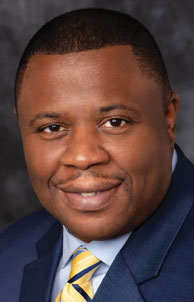Against the Grain II
By Vaughn Wilson
It has been 37 years since Julius Erving donned the No.6 jersey for the Philadelphia 76ers, but his impact to many is unforgettable. While there were stars before him and after he retired, there was something special about the imagery of the man affectionately known as “Dr.J” to specifically the Black culture.
Ervin was a star for the University of Massachusetts. While the National Basketball Association (NBA) had a rule that only allowed players to be drafted after a minimum of four years out of high school, the American Basketball Association (ABA) had a clause that allowed players to enter early. It didn’t take long for Erving to show that he was special.
In the ABA, Erving would win three MVP awards and two championships. Because of his flashy style of play, the league became a real threat to the NBA. Though they were prohibited from being in the same cities as NBA teams, Erving’s tenure with the Virginia Squires of Norfolk, Virginia was the hottest ticket in the area. When the ABA hit hard financial times, the NBA would acquire the league and bring that flashy style of basketball to the mainstream.
At the center of it all was Erving. Many credit him with saving the NBA, because the ABA’s attraction was financially straining the NBA. With the talented and athletic Erving now wearing the colors of the New Jersey Nets, he was exposed to an international audience.
He earned his nickname from playing at the world-famous Rucker Park in New York. People would climb trees, sit on adjacent buildings, and crowd the historic court to catch a glimpse of the most exciting player on the planet. Being accepted at “The Rucker” was a rite of passage for all players to be considered the best and Dr. J passed with flying colors.
Erving would be traded to the Philadelphia 76ers and carve a historic run for himself. He was an 11-time NBA All Star. He was twice the NBA All Star game MVP. Erving’s crowning glory came in 1983 when they won the NBA Championship. It was the only thing that had eluded his career to that point, and it was done defeating one of their toughest rivals, the Los Angeles Lakers.
Erving was the king of slam dunks. His high-flying acrobatics made for jaw-dropping scores in both the ABA and NBA. He was “that dude.”
Maybe more importantly was what Erving did off the court. In postgame interviews he was always as articulate or more than any reporter interviewing him. He always had a cool and thoughtful demeanor. He never followed trends, he made them. He entered the arena wearing a suit fit for a Fortune 500 CEO and exited in a Ferrari like the biggest stars of Hollywood. His afro was always on point. It was his crown and one of the most Afrocentric symbols that has ever existed, unique to the culture.
Erving had business dealings that spanned far beyond the court. He never sought to be the highest paid player because his off-court endeavors provided his financial stability. He was one of the first players to have a signature shoe. His leather Converse “Dr.J” was the standard in footwear, long before Nike and Jordan captured the market. He purchased a Coca-Cola bottling plant as well as a golf course as a part of his diverse business portfolio.
He even was the star of a movie, decades before Michael Jordan starred in Space Jam. In 1979, Erving starred in a comedy movie called “The Fish that Saved Pittsburgh.” In the movie, he played the star of a team who struggled to win, but miraculously found a way to become champions.
The timing of Ervin’s ascension was critical. Prior to Erving taking center stage, there were numerous instances of Black athletes without decent oration being forced in front of cameras that they were not prepared for. Stumbling through interviews with no subject-verb agreement was a sore spot for the culture. It was a setback.
Erving’s words and intellect meant more than his play in several instances. He was the beacon for what a talented athlete with intelligence looked like. Besides his famous dunk from the free throw line in the ABA Dunk Contest or the “Rock-the-baby” dunk on Michael Cooper of the Los Angeles Lakers, “The Doctor” served up a healthy dose of the potential of a Black man.

